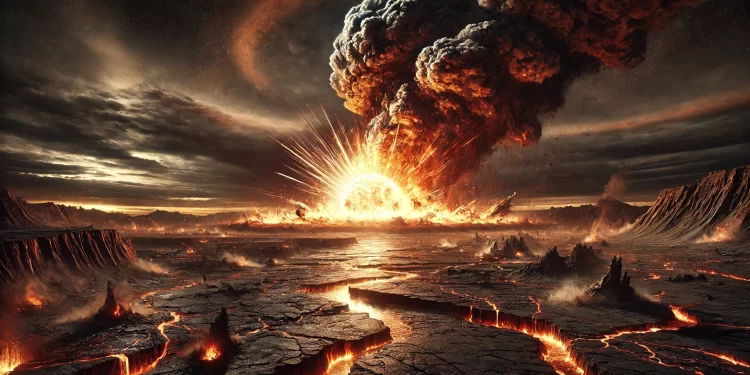The concept of mass extinction often evokes images of devastation, loss, and the collapse of ecosystems. But what if these cataclysmic events are also key drivers of life’s resilience and complexity? A recent study published in Monthly Notices of the Royal Astronomical Society challenges long-held beliefs, proposing that large-scale disruptions may ultimately make ecosystems more robust over geological timescales. According to EOS, this provocative idea reshapes how we understand life’s ability to adapt and evolve, with implications reaching far beyond Earth.
Rethinking the Gaia Hypothesis
The Gaia hypothesis, first introduced by James Lovelock and Lynn Margulis in the 1970s, suggests that Earth functions as a self-regulating organism, with life and the environment working in tandem to sustain favorable conditions. While this idea has inspired many, critics argue that life can also destabilize ecosystems, making survival precarious. For example, life-driven events like the Great Oxidation Event wiped out countless anaerobic species, challenging Gaia’s harmonious narrative.
A new study, however, explains EOS, leans into the Gaia hypothesis, suggesting that large-scale planetary disruptions might enhance ecological complexity. Using advanced computer models, researchers argue that these perturbations could foster biodiversity and resilience, potentially offering insights into where to search for life beyond Earth.
How Catastrophes Drive Complexity
The study employed the Tangled Nature Model, a simulation tool designed to mimic how species interact and evolve over time. Researchers introduced disruptions — such as reduced resources or harsh environmental changes — and observed how ecosystems responded. While some simulated worlds experienced complete collapse, those that endured showed greater diversity and complexity over tens of thousands of generations.
Astrophysicist Arwen Nicholson, one of the study’s coauthors, highlighted that Earth itself has displayed similar patterns. She pointed to the Great Oxidation Event, which, despite its immediate destruction, paved the way for more complex life forms like animals. “When you have a collapse, it gives the potential for something new to arise,” Nicholson explained.
Nathan Mayne, another coauthor, added that life often finds refuge during crises. These “pockets of survival” allow ecosystems to rebound and evolve in innovative ways. Such resilience, the authors argue, could be a universal principle guiding life on other planets.
Is Life Self-Destructive?
Not all scientists agree with these findings. Peter Ward, a paleontologist and proponent of the Medea hypothesis, argues that life is inherently self-destructive. He notes that life-driven events, like the evolution of oxygen-producing organisms during the Great Oxidation Event, have led to widespread extinctions. “Life evolves, and then it kills itself off,” Ward stated, emphasizing that diversity often flourishes during long periods of stability rather than upheaval.
Nicholson counters that such events, while catastrophic for some species, unlock opportunities for others. “Unlocking oxygen allowed life to become more complex…that’s why we’re here,” she argued, framing disruption as a necessary prelude to progress.
Implications for the Search for Extraterrestrial Life
The study’s findings could refine strategies for identifying alien life. By understanding how disruptions foster complexity, scientists might narrow their search to planets that have experienced similar perturbations. For instance, planets near the edges of habitable zones, where orbital shifts or asteroid impacts are more likely, may harbor complex ecosystems.
However, skeptics like astrobiologist Charles Lineweaver caution against overreliance on these models. “Biology is always full of surprises,” he noted, stressing the need for more observational data to confirm these theories.
This study offers a compelling narrative: life’s greatest challenges may also be its greatest opportunities. By surviving and adapting to catastrophic events, ecosystems don’t just endure — they evolve into something stronger and more complex.
Join the Conversation!
Have something to share or discuss? Connect with us on Facebook and join like-minded explorers in our Telegram group. For the latest discoveries and insights, make sure to follow us on Google News.











